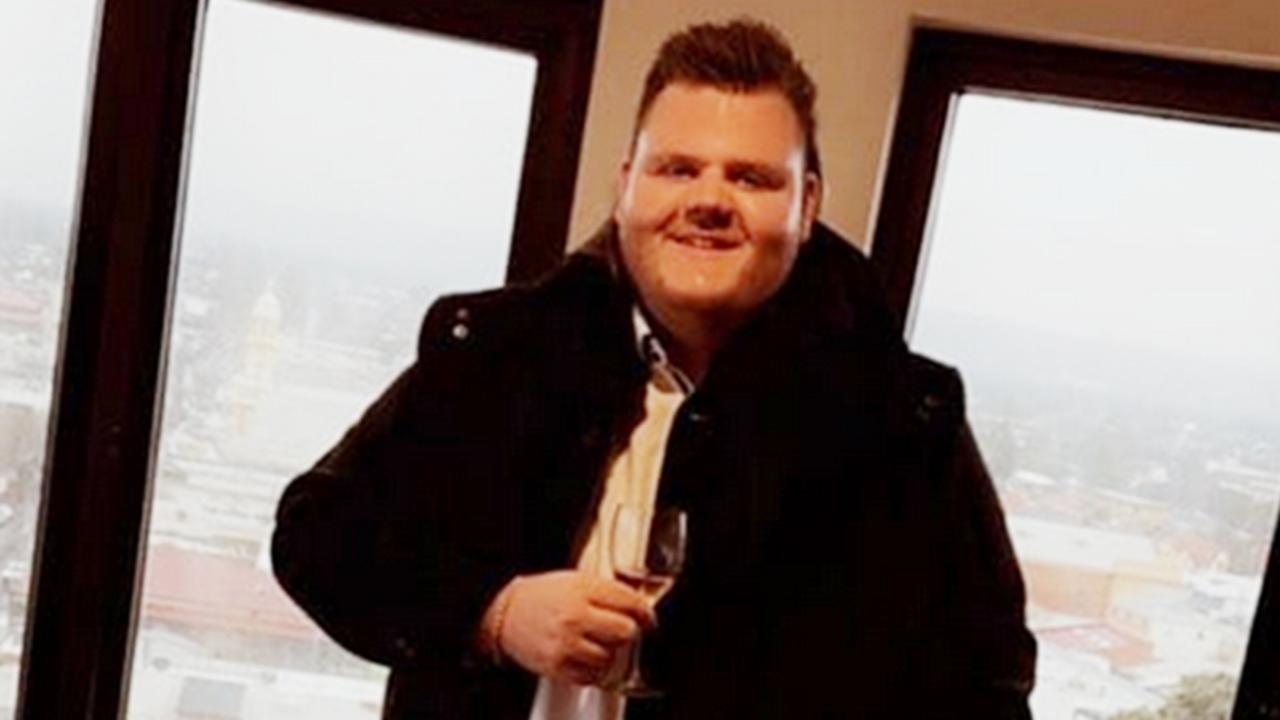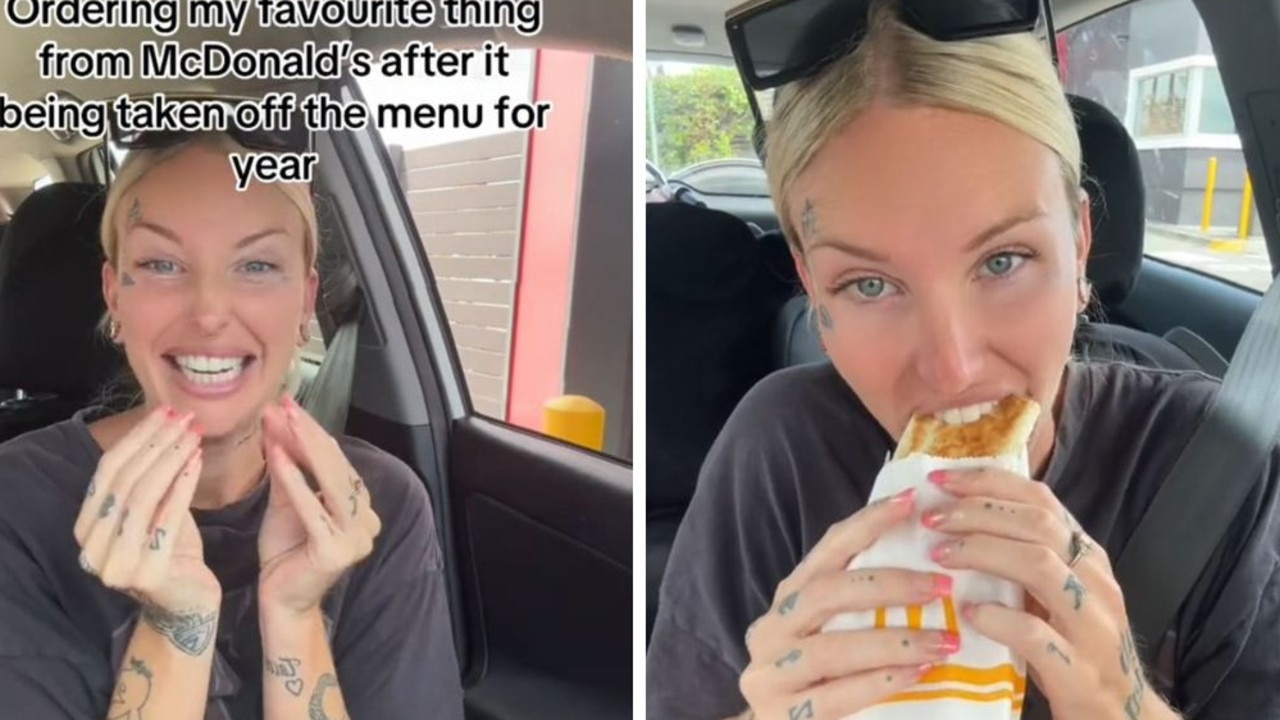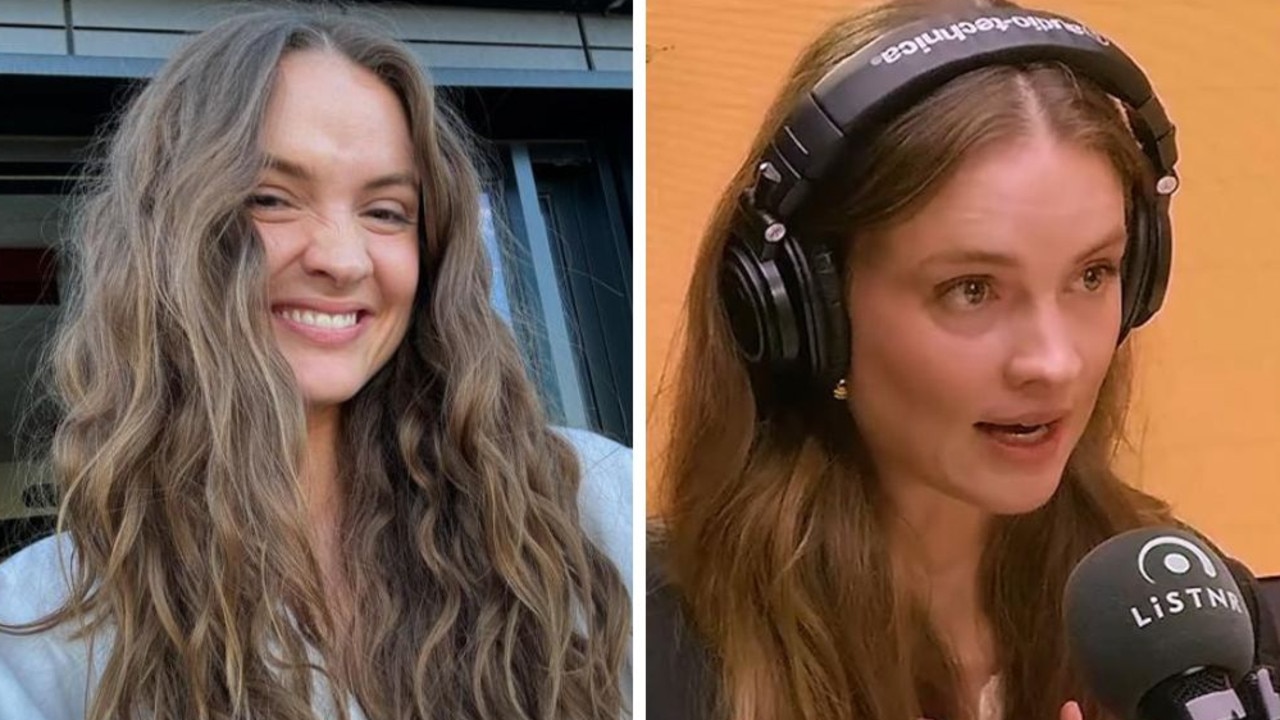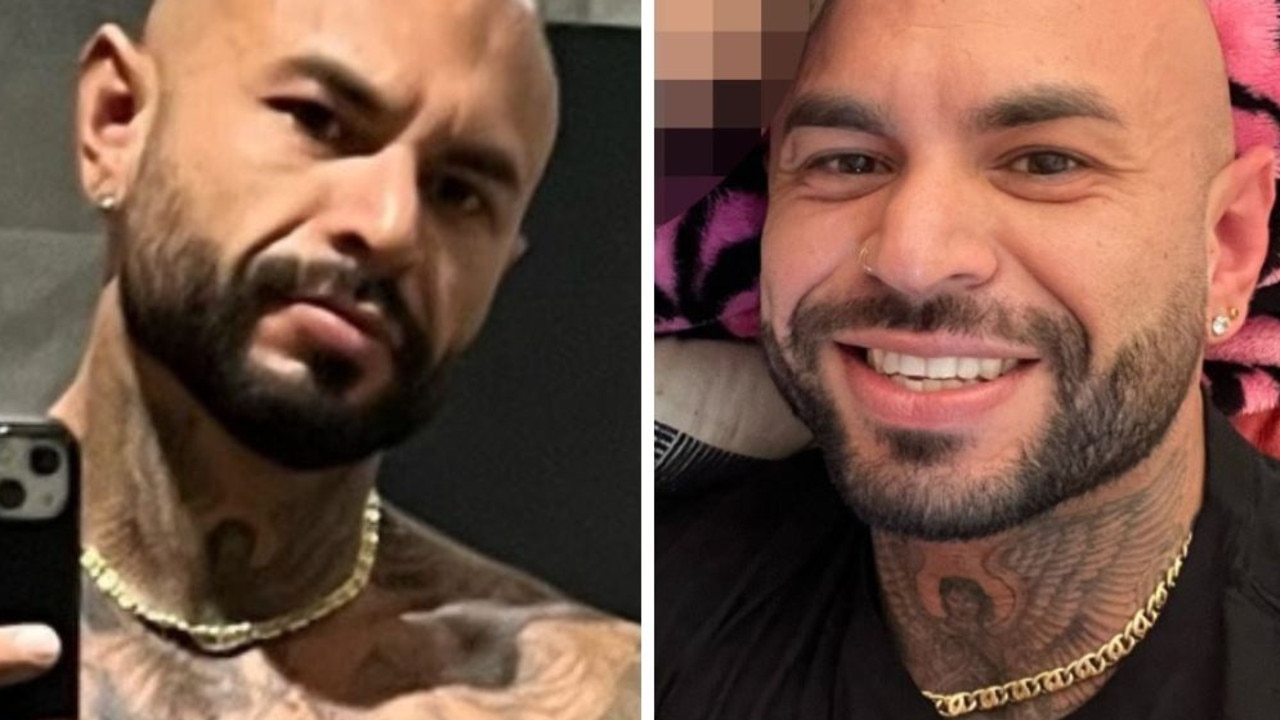23yo reveals dark secret behind selfies
A 23-year-old woman has revealed how she hit “rock bottom” and managed to turn her life around in just five years.
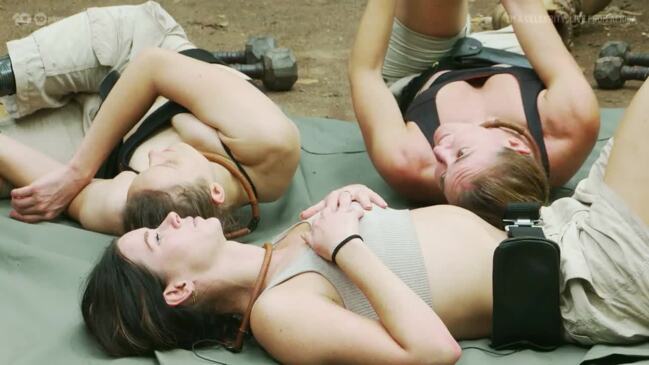
Lifestyle
Don't miss out on the headlines from Lifestyle. Followed categories will be added to My News.
A young woman has revealed how she hit “rock bottom” and managed to turn her life around in just five years.
Jacqueline Mantzouratos, 23, always felt “bigger” than other girls her age. Her school uniform needed to be specially ordered so it would fit her and her parents often expressed concern about her health.
The reality was the then-teenager was suffering with binge eating disorder, a condition that is characterised by eating a large amount of food in a short amount of time.
But Jacqueline didn’t consider herself a candidate for an eating disorder at the time. Like many teenage girls, she associated the term with wanting to be thin and only really knew of one eating disorder - anorexia.
She didn’t realise there were many different types of eating disorders that can affect people of all shapes and sizes. It would take years for Jacqueline to recognise her eating habits were problematic and even longer to get a formal diagnosis.
Jacqueline remembers, as a teenager, the first time she began to analyse her body. She’d just started at an all-girls high school, and describes that moment as a “culture shock”.
“I felt an expectation to look a certain way to walk a certain way, talk a certain way, dress a certain way and I just wasn’t prepared for what was happening around me and the expectations put on me,” she told news.com.au.
“I felt a very big pressure to look like everyone else and I’ve always been bigger (when it comes to my weight). You could always spot me in a picture quite easily because I looked different to everyone else.”

Trying to fit in
Like so many teenagers, her biggest insecurity was her appearance. She knew she couldn’t hide it.
Things escalated around Year 8. Her obsession with fitting in had her trying diets such as Lite N Easy, Weight Watchers, keto and intermittent fasting.
One of her biggest sources of anxiety was her school uniform. She said her parents had to spend a lot of money on the uniforms as she wasn’t a standard size.
Even in 40 degree heat she would wear a fleece jumper because what was underneath didn’t fit right.
Her weight fluctuated throughout her school years, with Jacqueline using food as a coping mechanism for feeling like she didn’t fit in but, at times, also punishing her body by withholding it.
She was also dealing with insulin resistance and polycystic ovary syndrome (PCOS), which affected her weight as well.
It all came to a head in her senior years of high school.
“I think the best way to describe it would be to break it up into four categories. The eating disorder, impacted my mind, body, heart, and then home,” she said.
“When I got a job, that’s when it really imploded because I could be buying and spending copious amounts of money on UberEats because I didn’t want to go out so people wouldn’t see me order stuff.”
Jacqueline said her parents were supportive, with her mum constantly cooking healthy meals and set a good example around body image. She said her mum tried to help her but Jacqueline was like a “negative cloud”.
Her parents were at a loss trying to figure out what was going on with their daughter so they began to take her to psychologists.

“It took me getting to rock bottom to realise that the only person that can help me is myself,” she said.
Hitting rock bottom
Jacqueline’s lowest point was a family trip to Greece in 2019 to celebrate her cousin’s impending nuptials.
“My mum and dad sat down with me to have a chat because transporting a person of the size I was overseas on a plane, on ferries. There were just so many things I hadn’t thought of,” she said.
“I had to buy two seats for every flight I was on. I had to ask for a seatbelt extender. We had to change restaurants multiple times because I couldn’t fit in the chairs provided.”
She said she couldn’t stand for long due to the pressure on her knees, hips and ankles so she needed her father’s help to get out of chairs. Jacqueline had to wear thongs to the wedding as she couldn’t fit into her shoes.
“I was sitting in this taverna with my family, squished into this chair, and I just exploded,” she said. “I couldn’t stop crying. I just couldn’t handle it anymore.
“I was missing out on everything. I felt like I was 89 but I was only 19 and I felt like enough was enough.”
Jacqueline came home from the trip determined to make a change. She no longer wanted binge eating disorder to control her life.
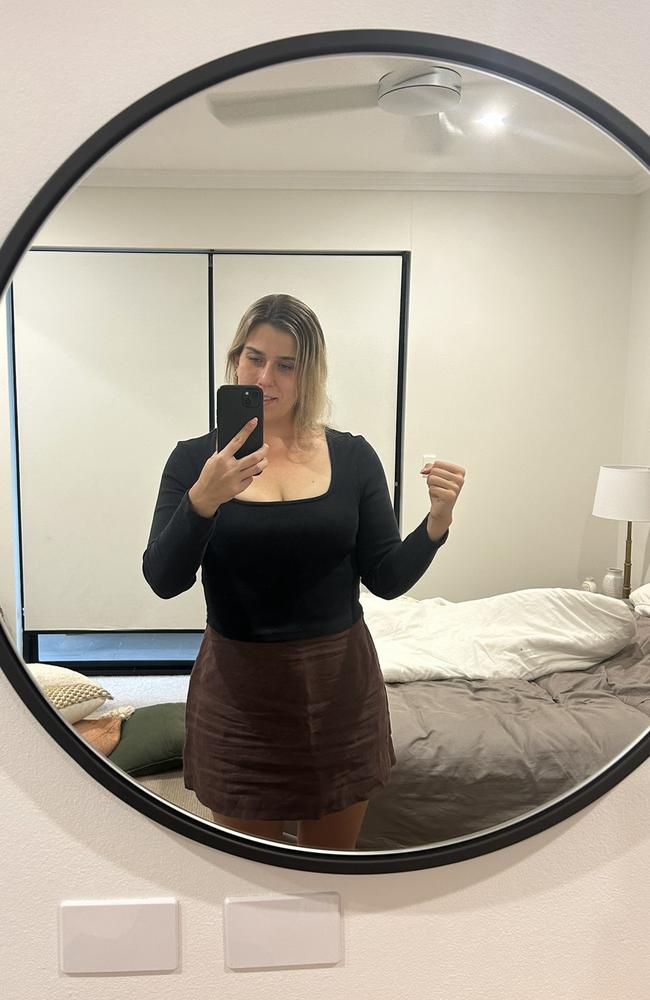
Making a change
When she got home, Jacqueline decided to weigh herself. All she got was an error message. Her parents gave her an ultimatum — lose weight or have gastric sleeve surgery. She did her best to lose weight but struggled due to her PCOS and insulin issues. A gastric sleeve surgery was booked in.
“I want to make it really clear. The surgery isn’t an easy way out. Everyone’s journey is different,” she said.
“The idea of surgery scared me and it frightened me into action. I cancelled the surgery two weeks before.”
She remembers being on the phone to the surgeon’s receptionist to tell her she wasn’t going ahead with it.
Jacqueline drove straight to the gym and began to work hard to get her eating under control.
She didn’t have a dietitian helping her but she did reach out to a psychologist to learn about her eating disorder.
It became a habit and, almost five years later, Jacqueline’s life has completely changed.
She’s disappointed she wasn’t given more education about eating disorders in school, so that she might have realised she had binge eating disorder sooner.
Now that she is in recovery, she wants to share her story so other people can be equipped with the knowledge that things such as excessive eating and rapid weight gain could be signs of a serious condition, and not just a lack of self control.

“You just have to remember your why like, ‘why am I doing this? Why am I trying’ and just relentlessly tell yourself that you’re worth fighting for,” she said.
“I know it sounds really like cliche, but honestly that’s what I used to do when I would drive to the gym is give myself a pep talk.”
Jacqueline shared some of her journey on Instagram — with her profile picture featuring a butterfly. Half of it was filled in with dark colours and the other a colourful, floral design. She felt that described her story.
“I feel like I am at my best the way I am now. I feel like I flourished in the most beautiful way and now I get to present myself in the way that I always wished I got to,” she said.
“Not just physically but mentally too. I love what Butterfly stands for and I resonate with a lot of what they stand for.”
Eating disorders can impact anyone
Jacqueline is one of a number of young Australians who have shared their story with news.com.au to show that an eating disorder can impact anyone, no matter their demographic. In fact, there are eight types of eating disorders formally recognised by the Diagnostic and Statistical Manual of Mental Disorders. These include anorexia, bulimia, and other specified feeding or eating disorders. The latter includes things such as atypical anorexia, which has similar symptoms as anorexia, but the sufferer has average or above average body weight.
Around 1.1 million Australians are currently experiencing an eating disorder, with around 27 per cent of sufferers being under the age of 19.
According to The Wave Clinic, binge eating disorder is the most common type of eating disorder, followed by bulimia and then anorexia — the complete opposite as to what so many Australians envisage.
According to the Butterfly Foundation, Australia’s leading organisation for people affected by eating disorders and negative body image, the number of Australians living with eating disorders is on the rise.
“Butterfly’s latest research shows that 1.1 million Australians are currently living with an eating disorder, an alarming 21 per cent increase in prevalence since 2012, and almost 10.5 per cent of the population will experience an eating disorder at some point in their lifetime,” the charity’s head of clinical and support services Natalie Spicer said.
“Eating disorders are serious, complex and potentially life-threatening mental illnesses; they are not a lifestyle choice, or a diet gone ‘too far’ and they require professional support as we know early intervention can reduce duration and severity of an eating disorder.
“While they are often stereotyped as only impacting young women, it is important to understand that eating disorders do not discriminate and can occur in people of any age, weight, size, shape, gender identity, sexuality, cultural background or socio-economic group. “We need to break down this stigma and increase awareness of the signs and symptoms of eating disorders to make sure that everyone can get the support they need and deserve.”
Originally published as 23yo reveals dark secret behind selfies




